THOUGHTS | DREAMS | ACTION

THOUGHTS | DREAMS | ACTION

If we’re going to get through the next few years, we need a change of narrative so profound that our entire culture changes direction. We need not just new stories, but a whole new shape to what a story is. And it will start with our writing.
My best books for Christmas 2017

Happy Hogmanay. Or if you’re from anywhere north of John O’Groats or south of Gretna Green, Happy New Year.
If you’re new, thank you for signing up to the newsletter, if you’re a veteran, thank you for hanging in there while I vanished from the face of the book-writing world and dallied instead in academia.
It hasn’t all been in vain. The new book is in with the copy editor, and flowing pleasingly through the system so, with luck, A TREACHERY OF SPIES will be published on 9th August (and yes, I had a working title of ACCIDENTAL GODS, but the working title becomes the final title roughly one time in ten, so this one rides with the odds).
It’s a semi-sequel to INTO THE FIRE, in that the contemporary characters from that book – Picaut, Patrice, Rollo, Ducat – are the core of the modern day thread, while the historical thread revolves around the SOE, the Maquis and the Jeburghs and moves from 1941 and the end of the Battle of Britain, through to the mid 50s when the CIA grew out of the remains of the OSS. I’ve always had a fascination for codes and ciphers and, for years, have wanted to take a look at the second world war and the cryptography of the SOE. On top of that, I did a lot of reading around the time Edward Snowden showed us just how deeply the NSA was infiltrating our private conversations, and began to wonder how the genuine, honest-to-goodness heroes and heroines of the forties, who took risks I could never bear to contemplate, evolved in less than two generations into the kinds of people whose stated intent is to gather everything about everybody and keep it forever. I read about Operation Paperclip and began to understand just how much the war had been an act of industrial piracy by the allies, but most especially the United States, and out of that, grew a book… If all the cards fall right, we’ll send you a chapter sometime between now and publication date.
In the meantime, Britannia is coming onto our screens – not an official interpretation of the Boudica books, but pre-transmission commentary makes it sound remarkably similar, so that gives me a chance to write some Boudica-based short stories to reconnect you and me with that time and place – and to introduce the series to people who weren’t born, or certainly weren’t of reading age, when the books first came out in the early years of the Millennium.
And then onto new work. In the hiatus between the last newsletter and now, I’ve done an MA in sustainable economics at Schumacher College, and stood for the council elections as a Labour candidate. These two are not unconnected: it seems to me that if we’re to avoid catastrophic climate breakdown, we need to change the way we create, view and use money, and Corbyn’s Labour party, miraculously, does seem to understand that the current system is broken beyond all redemption. My writing has always had some kind of an activist basis, but in the future, it will have to be more apparent: this is not a time for business as usual, for fiddling in our fantasy worlds while the world we live in quite genuinely burns around us
In between, I’ve taught the final one in the series of gated dreaming courses to my most advanced students. It took us 13 years, but we’ve finally been all round the wheel. That means that there is an entire group of students who are able – and willing – to take on some of the teaching, so those of you who were/are interested in dreaming, there will be a wider variety of courses in the coming years.
So it seems likely that the next book will be non-fiction. There’s a blog in the planning, and a podcast to go with it. Before you get there, if you’re interested, I’ve done a couple of episodes of the Sustainable Futures Report, most notably an interview with George Monbiot which was aired on the 8th of December:https://itunes.apple.com/gb/podcast/george-monbiot-out-of-the-wreckage/id313473372
And, as is (almost) traditional, here’s a round-up of the best books of 2017, fiction and non-fiction.
FICTION
The Spy’s Daughter, by Adam Brookes
If you haven’t already found Adam Brookes, then get thee hence and order his first novel, Night Heron – it’s easily the best espionage first novel (first espionage novel?) since The Spy Who Came in From the Cold. Actually, I think it’s better. Adam Brookes was a BBC Correspondent in China when he was ‘approached’ by the Chinese security services, and although he rebuffed their offers (at least, so he tells us, and I think we can believe him) the concept sparked ideas which have matured into a truly outstanding espionage series. This is modern spying at its very best. Here, at last, is someone who can actually write. The language is educated, but not stuffy, the characters are real, solid, genuine people with actual emotional intelligence, not the ciphers we so often get in this genre. And the plots… are out of this world. You won’t feel safer when you’ve read this series, but you will feel better educated. The Spy’s Daughter is third in the series and I sincerely hope it won’t be the last (Adam, are you listening?)
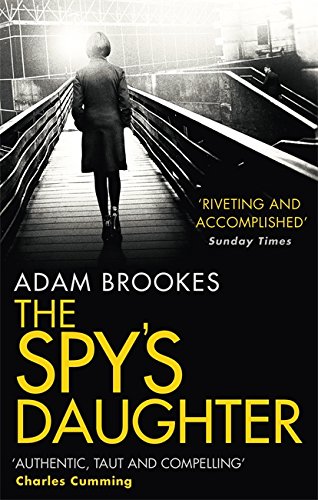
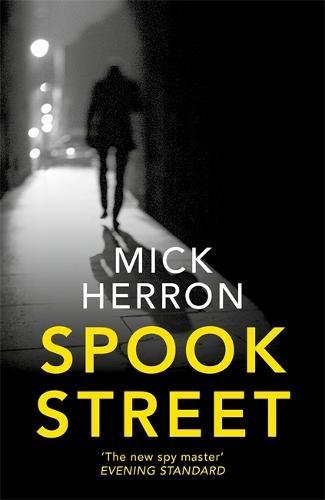
Spook Street by Mick Herron
Continuing the espionage theme, the Jackson Lamb series by Mick Herron that began with ‘The Slow Horses’ would be the best spy series on the shelves were Adam Brookes not so far out in front. These ones are set in the UK, where MI5’s misfits, renegades and people who know too much to be sacked have all been relegated to a dingy backwater called ‘Slough House’ where they are ministered to by one Jackson Lamb, the foulest spy master ever conceived – but possibly the brightest. His gang of hopeless losers is not, obviously, entirely hopeless, nor guaranteed to lose, and their continued ability to get the job done when the ones supposedly in charge are failing so to do (or deliberately dropping the ball) is the centerpiece of the conceit. The writing’s a bit too much in love with its own humour, but it’s well worth a read none the less. Spook Street is the fifth in the series and there’s a sixth coming out in February, so you’ve got time to take in the entire run before it hits the shelves
The Legion of Flame by Anthony Ryan
One of the most interesting things about our currently literary world, is the quality of the ideas coming out of a genre that used to seem to cater to pimpled, priapic adolescent boys. Anthony Ryan came to prominence with his ‘Raven’s Shadow’ series, which is often likened to Joe Abercrombie, but is, in my view, much, much better: characters more rounded, prose definitely much deeper, denser and more intelligent, and this is a man who actually knows how to write women, which is a breath of fresh air in a field still prone to institutional misogyny. The new series, ‘Draconis Memoria’ is a kind of steam-punk with dragons and Legion of Flame is the second in what I hope will be a long, long run. It’s fun and has more twists than a very twisty thing and I can easily read till four in the morning and not regret it at all the next day. (much).
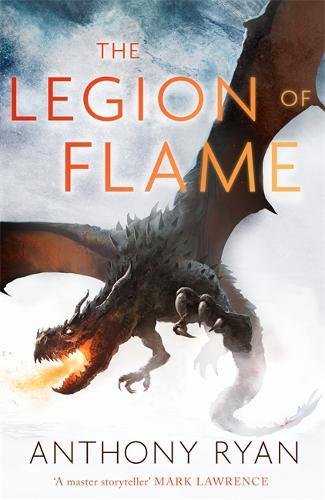
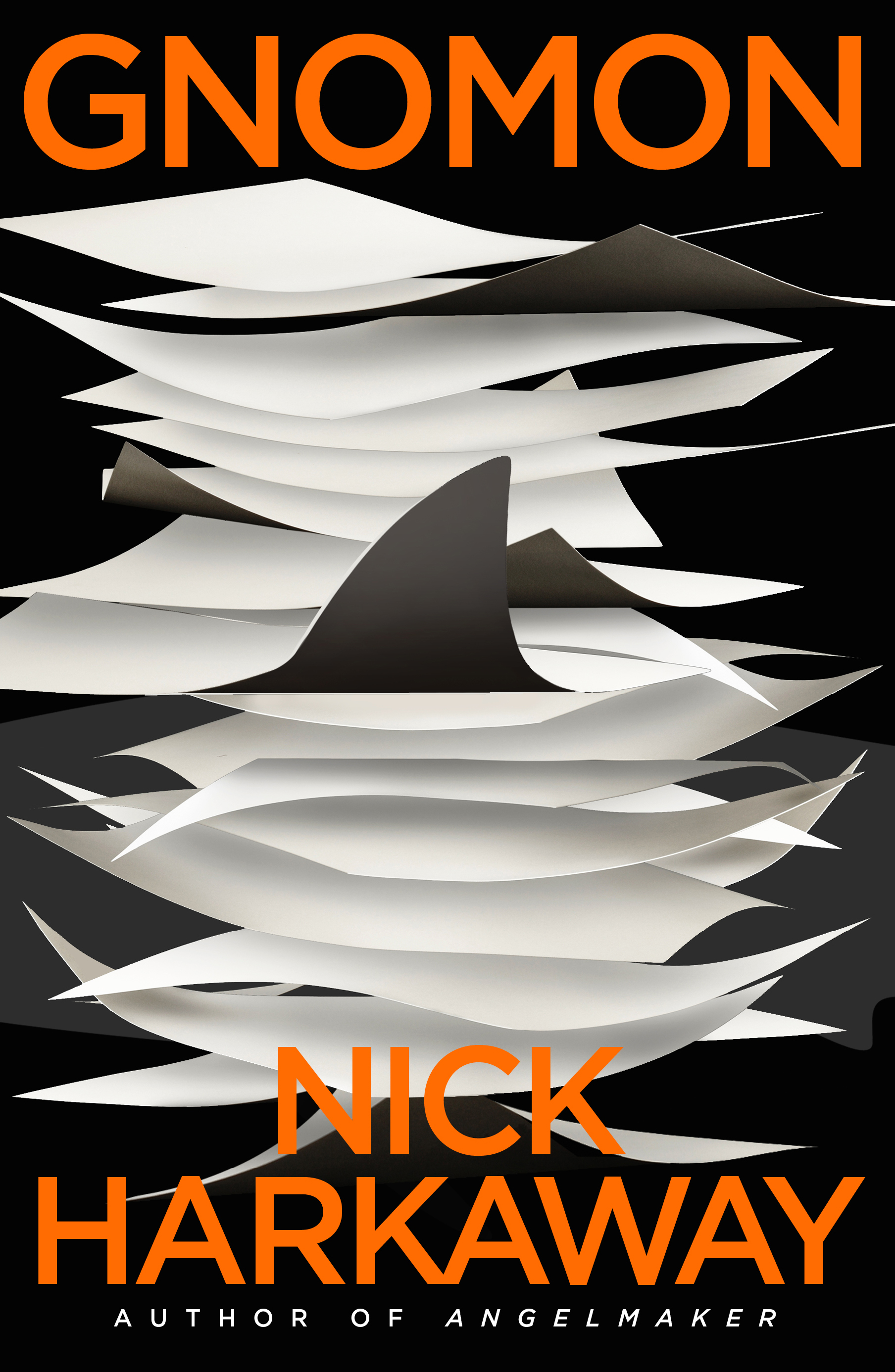
Gnomon by Nick Harkaway
Last but truly and honestly not remotely least on the fiction list is this near future dystopia by Nick Harkaway. When I can bring myself to finish it, this, too, will be part of what I talk about at St Hilda’s. It’s a great deal more terrifying than Laurie Penny’s simply because it’s that bit more plausible. Harkaway’s is a world where we have all voluntarily abdicated every shred of personal privacy to a network that takes care of us as the sheeple we are. I would like it if you didn’t have to read this, but you do. Quite what we do about it is moot. I’m open to ideas
Red Sister, (Book of the Ancestor, book One) by Mark Lawrence
By the author of the absolutely outstanding ‘Prince of Thorns’ series, another that stands in the feet of Abercrombie and looks out over his head. This is a new series, and promises to be brilliant.


Strange the Dreamer by Laini Taylor
Taylor’s ‘Daughter of Smoke and Bone’ trilogy was one of the outstanding crop of ‘fallen angel’ revisits that hit the shelves a year or two ago. She writes with flair and verve and her choice of a Czech setting for her primary timeline was adventurous, courageous – and gave a baroque feel to the books. Her new series is entirely different. There are echoes of Robyn Hobb here, but with less predictable set pieces. I loved it
Crooked Kingdom, (book 2 of the Six of Crows) by Leigh Bardugo
This is another series that promises much and delivers in spades. The characters here are truly intriguing and the writing is lively, fun and frequently unexpected.
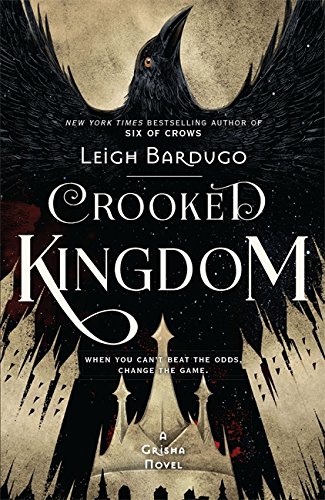
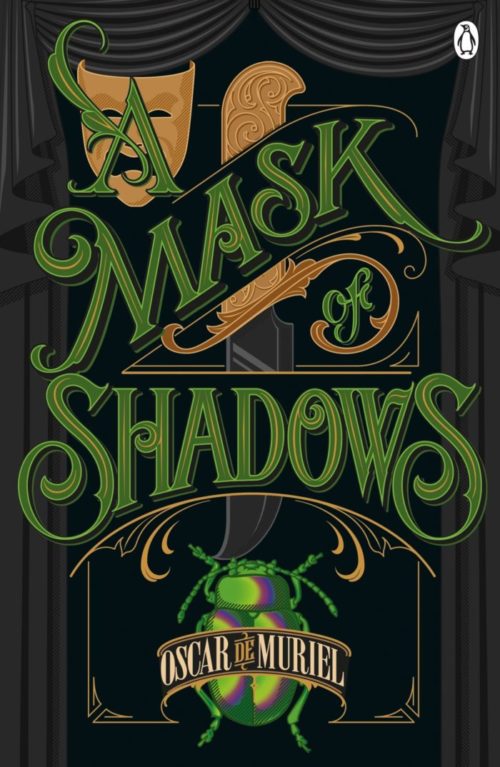
A Mask of Shadows, by Oscar de Muriel
Changing genres, Mask of Shadows is a crime novel set in Edinburgh in 1889, third in Oscar de Muriel’s hugely entertaining series featuring the wild and slightly crazy detective ‘Nine Nails’ McGray and his Watson-equivalent side kick, Inspector Ian Frey. This one is as much ghost story as Sherlockian detective and a good, bold, straightforward read.
Everything belongs to the future by Laurie Penny
I’ve been asked to talk about ‘dystopian politics and crime’ at St Hilda’s in August 2018 (I’ll be talking with Louise Welsh at 2pm on the 18th, do come) and this book will be a central part of whatever I get around to saying. Laurie Penny is one of the outstanding young columnists, a titan of her generation: she has an incisive, brilliant mind that takes on issues of class, gender and politics, usually all at once. Her columns in New Statesman make the subscription to what is otherwise a Blairite sounding box, worthwhile (check out the one on polyamory – it will tell you all you need to know and more) and her posts on Medium may yet make me revise my intenion never to subscribe. If you haven’t read this piece written from behind the scenes of the Republican Congress in the days before Trump was elected (heck, but it hurts to write that), then you have your next ten minutes filled:https://medium.com/welcome-to-the-scream-room/im-with-the-banned-8d1b6e0b2932
Her first novel is as sharp, bright – and dystopian – as you’d imagine. Set in Oxford in the near future, it looks at who, and what we might become with disturbing clarity. I love every part of her prose, so this is always going to be on my list of novels everyone should read

NON-FICTION
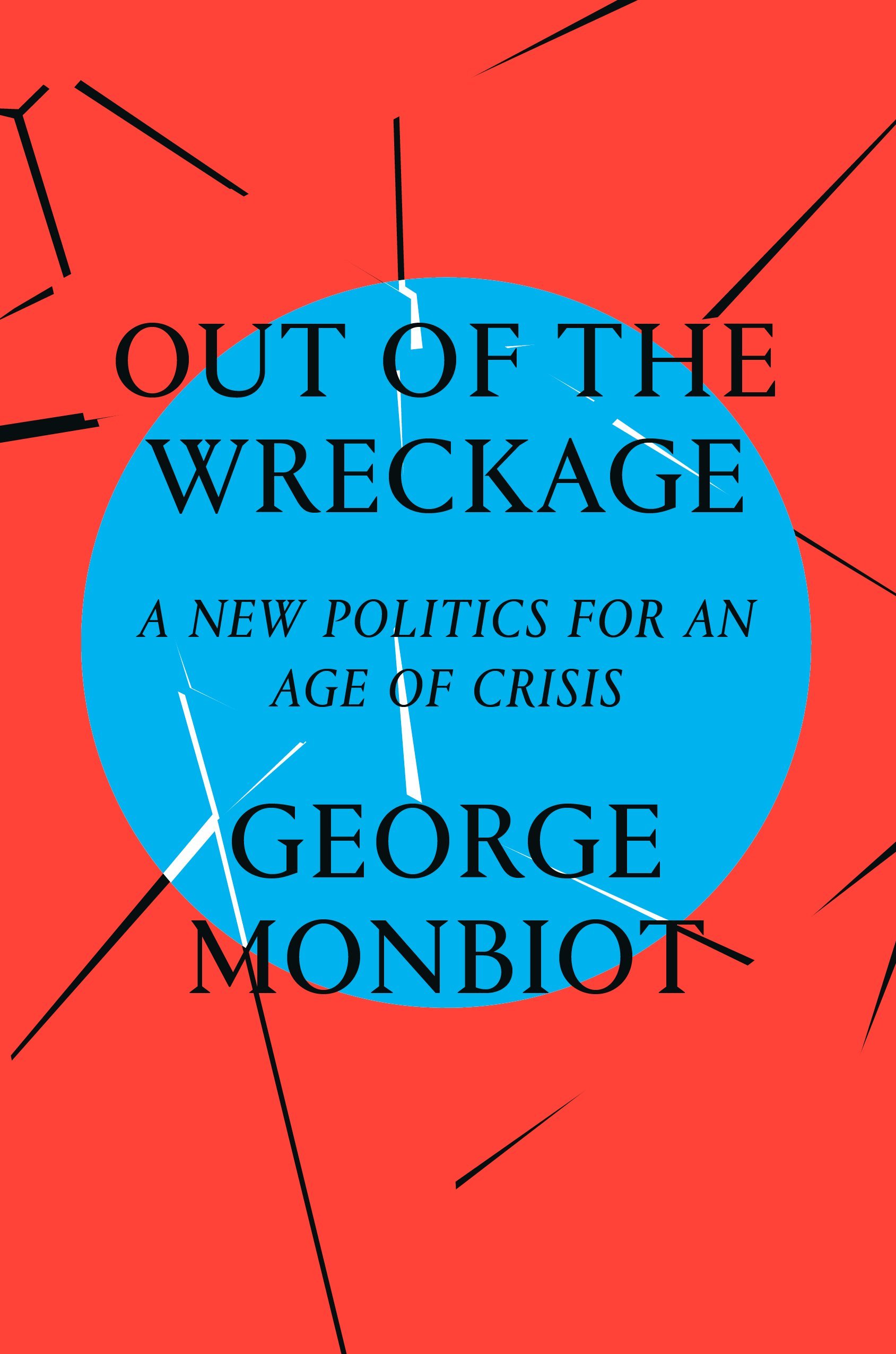
Out of the Wreckage: a New Politics for an age of Crisis by George Monbiot
I spent the entire time of the Masters course in Devon saying, ‘We need to change the narrative’. George Monbiot’s researcher was on our course – the second brightest individuals I have ever met anywhere, under any circumstances – and lo, here is George Monbiot, showing us how to change the narrative. Note: I am not suggesting that these two things are linked, more that the time is now for us to start telling ourselves new stories of who we are, how we got here and –crucially – where we want to go. If we are going to clamber out of the wreckage, this is the book that will lead the way. Read it and then do something useful with the coming year.
No is not enough: Defeating the new Shock Politics, by Naomi Klein
If you haven’t read ‘This Changes Everything,’ (why not?) then you should read that ahead of this, her long scream at Trump and all he represents, and an outline of what we can do – it doesn’t have as many answers as Monbiot, but it’s a good start.
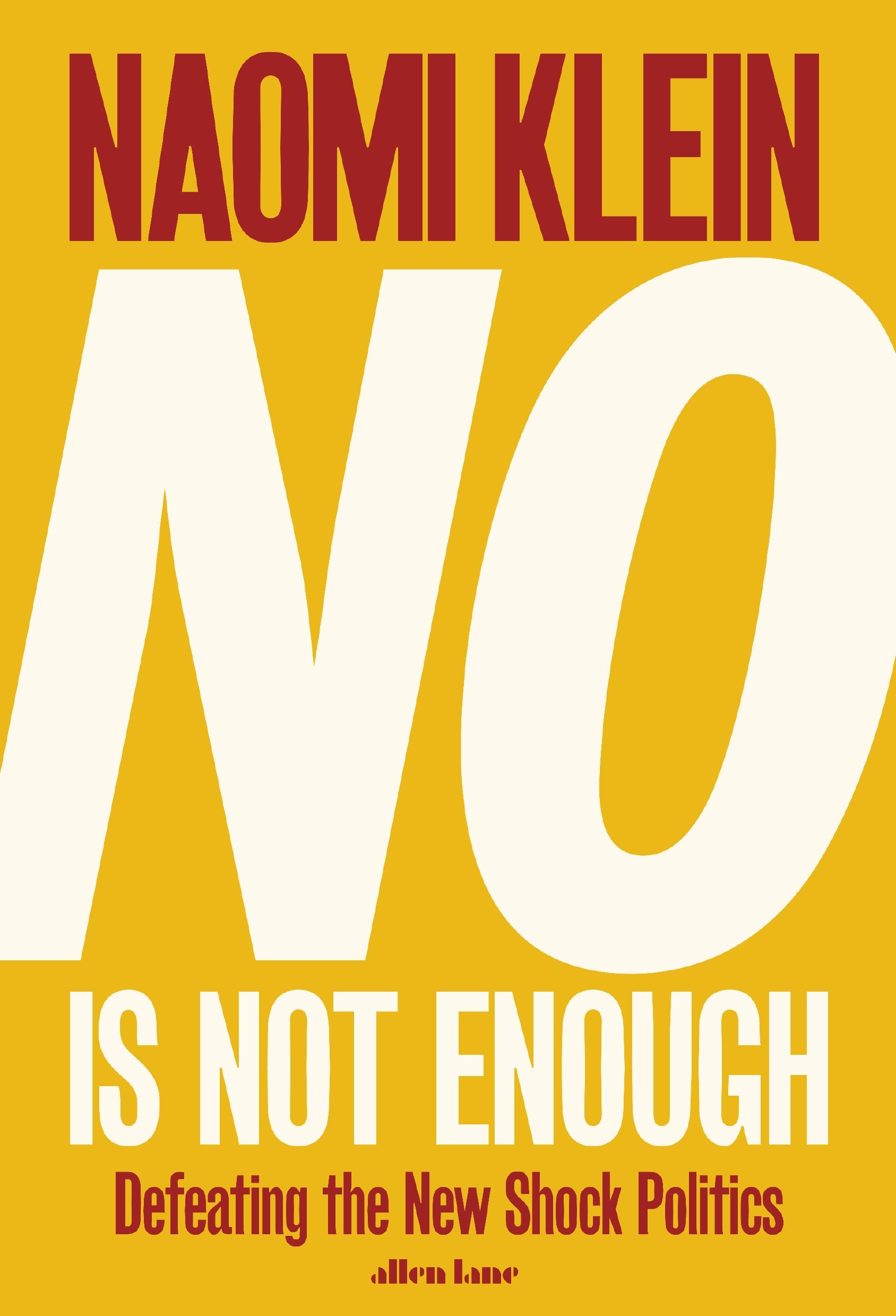

Doughnut Economics, Seven Ways to think like a TwentyFirst century Economist, by Kate Raworth
I know you’re not into economics. I know the title is not all it could be, but Kate Raworth is the brightest individual I have ever met and if she doesn’t get a Nobel Prize for this book, it will be a scandal. We need to change the narrative, and here is the person doing it – she dives into the guts of how we got to the ridiculous position we’re in, where we have an economy that destroys people and seems unstoppable, and she shows us how to create an economy that works for us, where equity and sustainability and social justice are at its core, not externalities to be ignored. If you only read one book in this entire list, make it this one.
Talking to my Daughter about the Economy: A brief history of Capitalism by Yanis Varoufakis
What can I say? Varoufakis is an economics rock star with the literary fluency of an angel. This book was written before his outstanding ‘Adults in the Room’ which detailed the horrors behind the scenes as the Troika set out to gut the Greek economy. It has only recently been translated into English, but if you want to understand how and why the current system doesn’t work, this is the book for you.
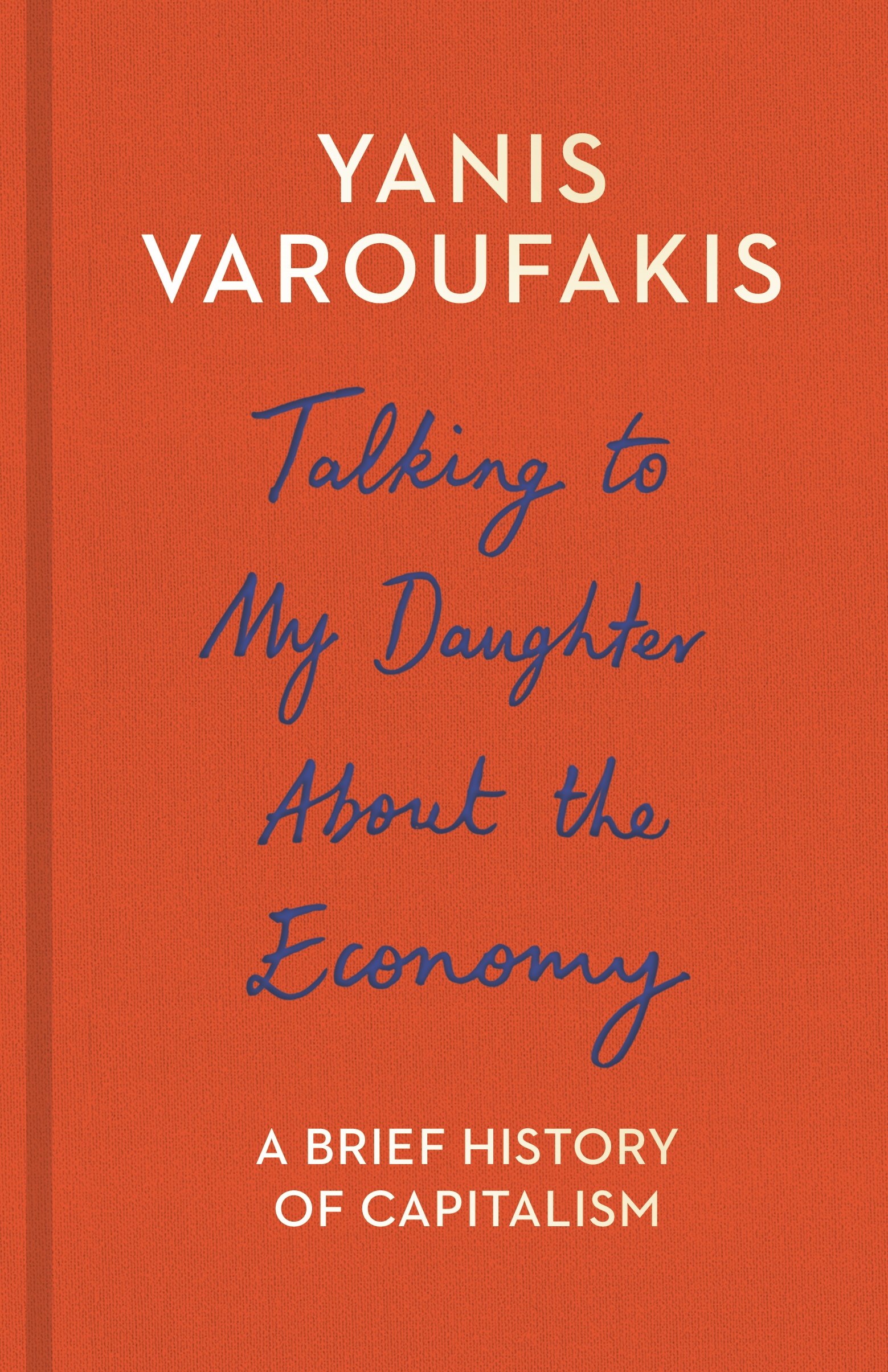

Democracy in Chains: the deep history of the radical right’s stealth plan for America by Nancy MacLean
This is the single scariest book I have ever read. Nancy MacLean is a Professor at Virginia State who stumbled upon the abandoned offices of a group set up by an economics professor and the Koch brothers. They were planning a 50-year take over of the institutions of state, but Obama’s election kicked them into overdrive (can’t have someone who isn’t white in the White House, can we?) and they abandoned the ‘Virginia brownstone’ where she came upon their records, and relocated to somewhere bigger, smarter and more expensive, from where they launched the Tea Party and, in the end, propelled Donald Trump into power. If you think the things they are doing are random, if you think the destruction of democracy is happening by accident, you need to read this book. And then if you’re in the UK, you need to follow very closely the actions of those in the Tory party who are affiliated with the Atlanticist movement, notably Liam Fox.
